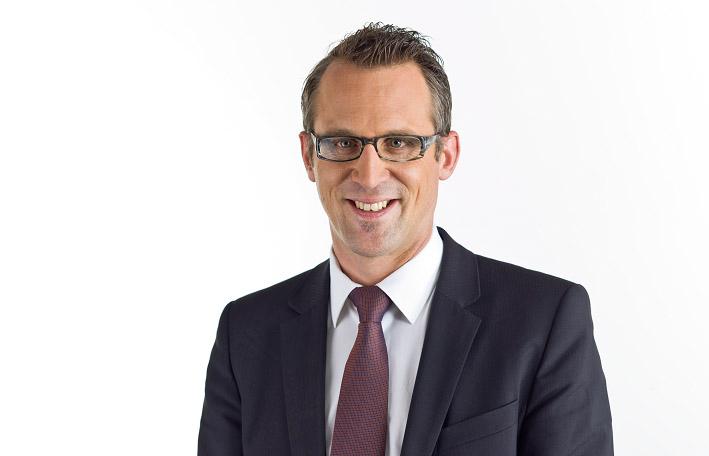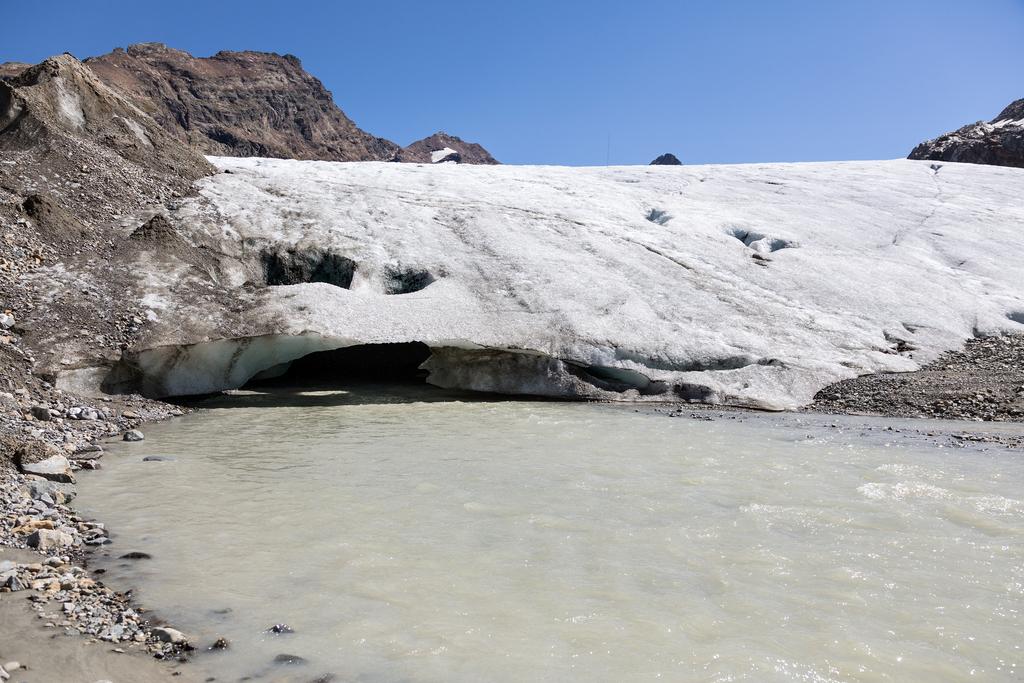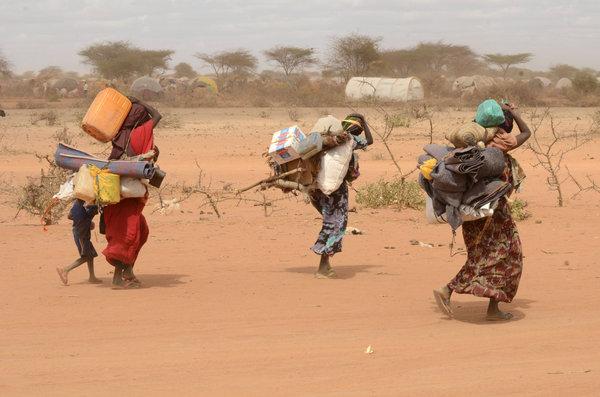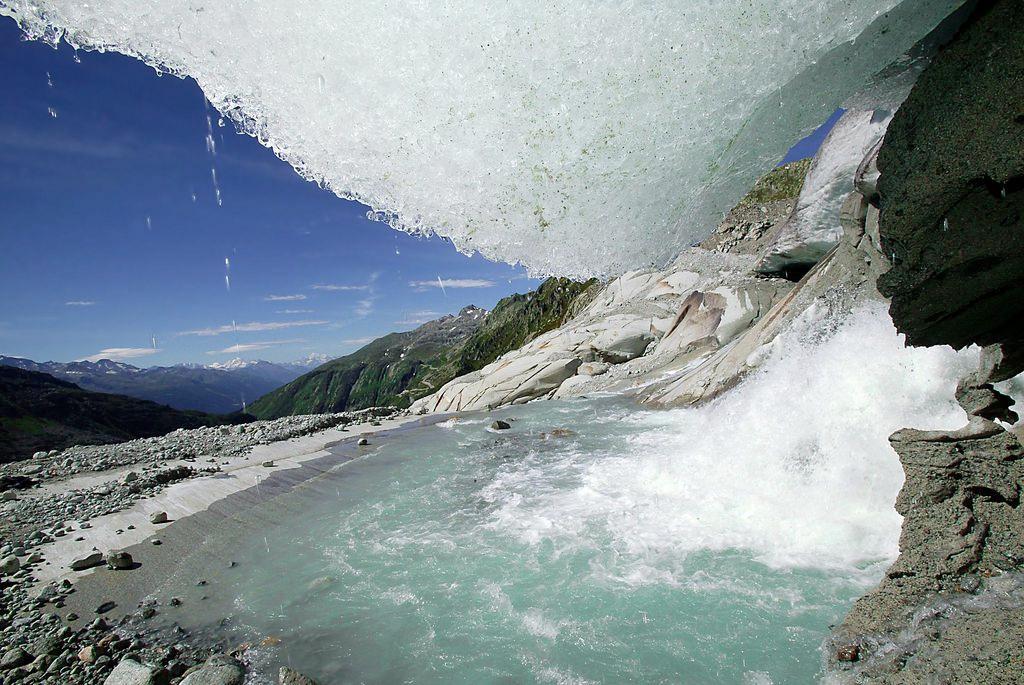Little Switzerland – a major climate change player
Switzerland should campaign for a climate model that fixes global greenhouse gas targets for the economy and invest much more money in research into innovative efficient-energy technologies, argues Kurt Lanz from the Swiss Business Federation (economiesuisse).
From November 30 to December 11, international climate experts are due to gather at the United Nations climate summit in Paris. After several fruitless negotiation rounds, this latest meeting is expected to adopt a new global agreement and set mandatory targets. By 2020, all states should be doing their part to reduce greenhouse gas emissions.
Ahead of the summit, every country had to submit its reduction target for beyond 2020. So what is Switzerland doing? Is it heading in the right direction?
According to the cabinet, Switzerland aims to reduce greenhouse gas emissions by 50% by 2030, compared to 1990 levels. At least 30% of this – the lion share of the emission savings – should be reduced through measures in Switzerland. The remaining 20% could be achieved by reducing emissions abroad.

In order to avoid competitive disadvantages, we should harmonise our own targets with those of the international community, especially as we are facing a difficult economic situation due to the strong Swiss franc.
By trying to reduce most of the emissions at home, we would unnecessarily weaken Switzerland’s position as a business centre. The climate problem is a global one and does not stop at national borders.
A reduced ton of carbon dioxide (CO2) is a reduced ton of CO2 – no matter where it is being reduced. However, the costs differ and Switzerland charges significantly more than other countries. One franc can go a lot further abroad than at home, and the numbers speak for themselves: Swiss certificates cost around CHF100 per ton of CO2; within the European trading system they cost around €8 and the price for the Kyoto certificate is around €0.5 per ton.
Swiss model
Switzerland has an excellent model for efficiently reducing CO2 emissions: the target agreement for member companies of the Swiss Energy Agency (EnAW).
More than 3,000 companies, which account for almost half of the CO2 emissions by the Swiss economy, work with this model. Their track record is impressive. Target agreements are set via incentives. If the companies reach their efficiency targets, they get their CO2 tax refunded.
This system is much more expedient than a steering tax, detailed regulations or direct government tax. With these target agreements, and despite economic growth, Swiss companies have emitted 25% less CO2 compared to 1990, which lies significantly above the Kyoto target.
Together, they have also saved several billion Swiss francs in operating costs and duties. The fact that the environment and the economy equally benefit from this system shows that the EnAW gives the right incentives. With this model, the Swiss economy has not only done its homework, it has found an excellent solution.
Switzerland should act as a role model and campaign for this system to be used across the globe. It would make much more of a difference globally than setting goals that are too high, and achieving them by applying expensive domestic measures.
In Switzerland, the impact is not really significant: it is only responsible for 0.14% of global greenhouse gas emissions.

More
Paris: Is climate protection getting serious?
With a global target agreement model for the economy, Switzerland could help realise crucial reduction targets instead of losing its way in expensive and damaging micromanagement that has no global impact.
Swiss research centre
If Switzerland wants to find international solutions that have a global impact, it should also invest more in research in sustainable energy technologies. As a centre for research and development, Switzerland has the best preconditions. Instead of castigating us at home, we should do more research on innovative, global solutions and develop them.
Imagine what would happen if Switzerland invested all the money which is normally used for expensive compensation at home in the research and development of energy-efficient technologies. Switzerland would make a global contribution and achieve a significant reduction effect of greenhouse gases, as well as strengthen and upgrade its position as an economic centre.
Not act single-handedly
Something needs to happen in the field of climate protection. We can only hope that the climate conference will come up with solutions that are broad, realistic and economically viable. We need one viable global answer rather than endless national solutions. Results need to be measurable and cheating must be made impossible.
It is important to offer more flexibility, as this would make the whole system more efficient; and money should be spent where most savings are being made.
Switzerland should not act single-handedly. Let’s hope that little Switzerland can play a major role and does not end up being swamped by micromanagement. There is a good chance that this could happen.
The views expressed in this article are solely those of the author, and do not necessarily reflect the views of swissinfo.ch.
swissinfo.ch publishes op-ed articles by contributors writing on a wide range of topics – Swiss issues or those that impact Switzerland. The selection of articles presents a diversity of opinions designed to enrich the debate on the issues discussed.

In compliance with the JTI standards
More: SWI swissinfo.ch certified by the Journalism Trust Initiative




You can find an overview of ongoing debates with our journalists here. Please join us!
If you want to start a conversation about a topic raised in this article or want to report factual errors, email us at english@swissinfo.ch.